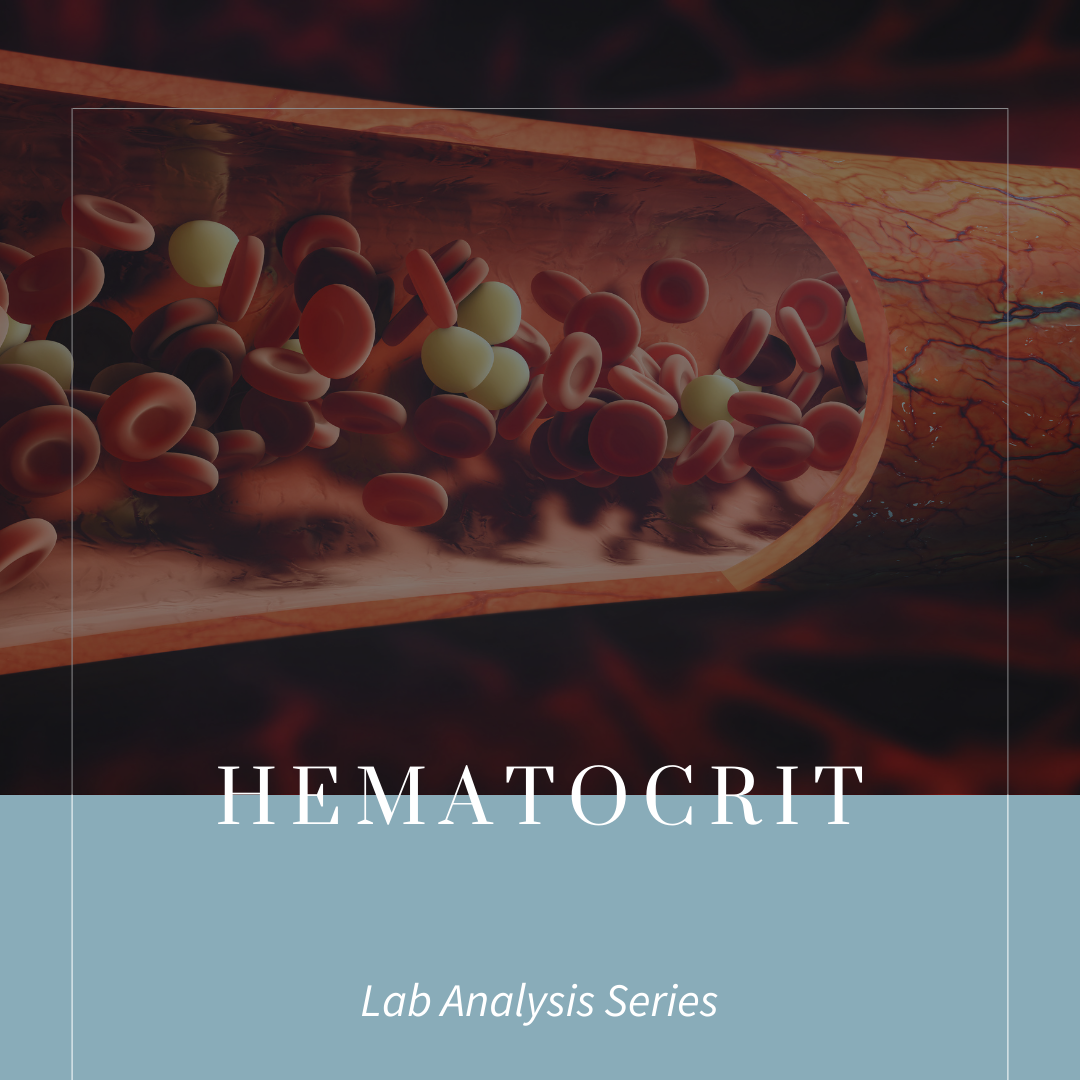Hematocrit TestingThe Hematocrit (HCT) is a measure of the volume of packed red blood cells (RBCs) in the centrifuged sample. Hematocrit = individual erythrocyte volumes X erythrocyte count/10 It is an essential component of a complete blood count (CBC), that is expressed as a percentage. Hematocrit in PregnancyHematocrit percentages decrease by approximately 2% in the first half of pregnancy due to increasing plasma to RBC ratios. This decrease can be greater in multifetal gestations. More important than the percentage number is the drop that should occur from the first trimester through second trimester with hemodilution. Postpartum changes may depend on birth experience. There may be an initial drop due to blood loss during delivery, followed by a gradual return to pre-pregnancy levels. Generally, ranges recover and return to prepregnancy ranges by 6 weeks postpartum. High Hematocrit in PregnancyElevated hematocrit of >44% increases the risk of adverse pregnancy outcomes. Studies show that a hematocrit greater than 40% increases the risk of pregnancy complications and a hematocrit that doesn’t drop by approximately 2% from the first trimester to the late second trimester also increases the risk of pregnancy complications. Causes of High Hematocrit in Pregnancy
Low Hematocrit in PregnancyLow hematocrit can indicate anemia and should be assessed further with other complete blood count indices. In much of conventional obstetrical and midwifery care, the classic H&H (hemoglobin and hematocrit) is all that is run in assessing for prenatal anemia. This is tragic, as many cases of low hemoglobin and hematocrit are not associated with iron deficiency and primary treatment for low H&H is iron supplementation. Causes of Low Hematocrit in Pregnancy
Want to Know More...Copyright © 2024 Functional Maternity, all rights reserved. The content in this article is not intended to be a substitute for professional medical advice, diagnosis, or treatment. Always seek the advice of your physician or other qualified health provider with any questions you may have regarding your medical condition.
0 Comments
Leave a Reply. |
Hi There!I'm Sarah Thompson, the author of Functional Maternity, and the upcoming book Beyond Results - A practitioner's Handbook to Effective Functional Lab Analysis in Pregnancy. Lab Tests
All
|


 RSS Feed
RSS Feed